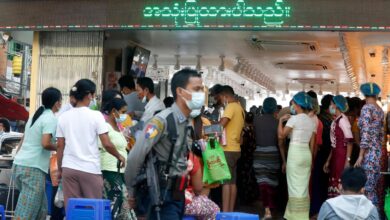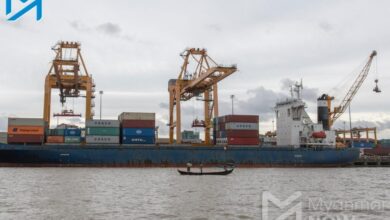
Almost half of Yangon’s hotels have shut down amid a near total collapse of Myanmar’s tourism industry, according to figures provided by an official from the junta’s tourism ministry.
The devastation to the industry has been caused by the combined impact of the Covid-19 pandemic and the military’s February 1 coup.
Of the 483 hotels registered in the former capital, 225 have now ceased operations, said Nyo Aye, the director of the ministry’s Yangon office.
Tourism businesses in many parts of the world are looking tentatively towards a recovery amid vaccine rollouts, while Thailand and Vietnam have announced pilot programs to welcome vaccinated travellers.
But the instability and nationwide conflict sparked by the coup has extinguished hopes that Myanmar will be able to follow in the footsteps of its regional neighbours.
Nyo Aye, who made no mention of the military’s power grab in his assessment of the problem, said the hotel closures would only be temporary.
“Almost half of the hotels had to take a break as the operation costs were high and there were no guests. They’re going to open again once guests come back in,” he told Myanmar Now.
Those hotels that have remained open have done so by downsizing and slashing costs while providing quarantine services for people returning to Myanmar on relief flights, he said.
Of the roughly 3,000 tour operators based in Yangon, all but seven have shut down their businesses, he added.

The hotel closures include the five-star Sule Shangri-La, which announced just before the coup in January that it would shut its doors for nine months.
The Sedona Hotel remains open to current guests but has stopped receiving new guests and suspended meal services.
May Myat Mon Win, the general manager of the luxury Chatrium Hotel, said her establishment is still hosting some long-stay and local guests, as well as those returning from abroad on relief flights.
“We have made very little to no profit during this time but we don’t want to give up yet because we believe that a hotel can contribute a lot to the community,” she said. “So we will keep on operating.”
There is still some business for hotels in Yangon because of the presence of international companies in the city, she said, noting that establishments in tourist hotspots like Inle Lake and Bagan have suffered even worse.
The Lotte Hotel near Inya lake in Yangon has also remained open by offering services to staff members of businesses closely associated with its parent company, a staff member there said.
Employees from the South Korean petroleum company Posco are using the hotel to quarantine when they travel to Myanmar, where Posco operates the Shwe Natural Gas project in Rakhine. Posco also partly owns the hotel.
Myanmar’s annual tourism revenue reached $2.8 billion in 2019, then plummeted by 80% the following year after most international flights were banned in March 2020.
Before the February coup plunged the country into chaos, the industry had been hoping for a recovery this year.
“It’s hopeless for us local business owners,” said an officer from the Union of Myanmar Travel Association, who also owns a tour company and asked not to be named.
“To be honest we don’t know when this is going to end.”



